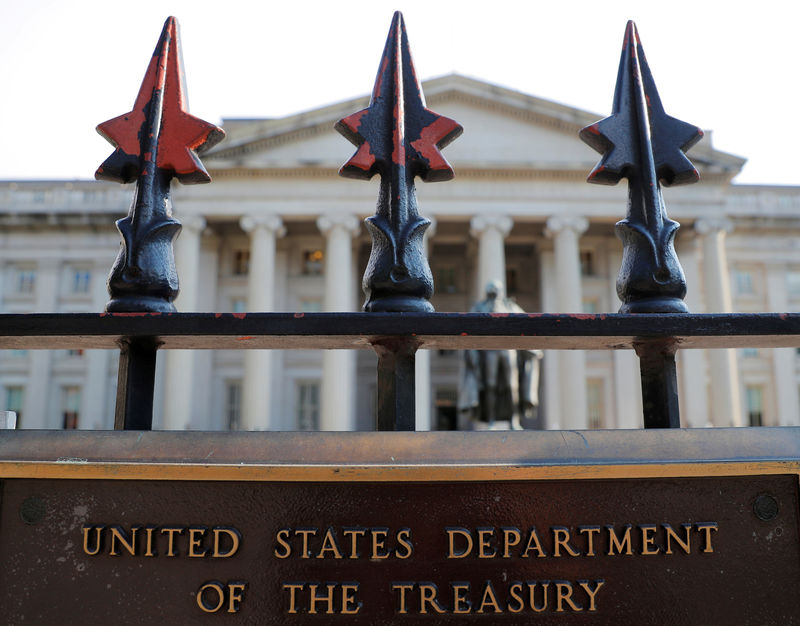(Bloomberg) -- A string of poorly-received bond auctions in the past week is driving home a message -- the Treasuries-led global rout is leaving investors scarred and governments staring at higher borrowing costs.
Treasuries resumed declines on Wednesday, sending yields higher across the curve. That follows a disastrous sale of seven-year notes in the U.S. last week, which set the tone for tepid demand for subsequent sovereign bond offerings from Indonesia to Japan and Germany. The push for higher rates comes as central bank policy makers attempt to ease investors’ discomfort at the pace of the recent jump in yields.
Investors are demanding higher yields to compensate for the risk of further volatility, which may complicate efforts to finance $14 trillion worth of fiscal stimulus. Concerns that central banks may withdraw policy support has soured sentiment, amid mounting evidence of a faster-than-anticipated economic recovery.
“Investors will be increasingly differentiating countries based on their fundamentals and prospects,” said Tuuli McCully, head of Asia Pacific economics at Scotiabank. “Considering elevated debt levels in some countries, higher funding costs could dampen their economic recovery momentum further.”
Clear Message
The message from Europe and Asia Pacific’s markets this week is clear. In Germany, a sale of 15-year bonds on Wednesday received the weakest demand since the tenor was launched last summer. That comes after Indonesia’s Finance Ministry agreed to sell 13.6 trillion rupiah ($951 million) of non-Islamic bonds on Tuesday, the least since March 2020, according to data compiled by Bloomberg. Including bills, the sale totaled 17 trillion rupiah, below the government’s revised target of 30 trillion rupiah.
“If there is still no reversal in sentiment, the government may need to accept higher bid yields, or cut down on planned spending,” said Frances Cheung, a rates strategist at Oversea-Chinese Banking Corp. in Singapore.
Even though global bonds have stabilized this week, investors are clearly still rattled by the prospect of more volatility. Other than Indonesia, Japan’s sale of 10-year bonds on Tuesday recorded the lowest bid-to-cover since February 2016, and Germany’s sale of 15-year debt also saw tepid demand.
Italy’s sale of green bonds was the exception, racking up 76 billion euros of orders, boosted by its environmentally-friendly tag. In Russia, the Finance Ministry sold the most fixed-coupon notes since June, as mild sanctions from the U.S. failed to deter investors.
In early signs of what would unfold at the U.S. auction last Thursday, the coverage ratios for debt sold in Thailand and Australia a day before that dropped. Later, there were signs of distress in Italy, while New Zealand ended up accepting just over half of the bids it received for a sale as yields soared.
The U.K.’s annual budget due Wednesday will also be in focus as the government tries to balance the need for prolonged economic aid with calls to control the deficit. Strategists expect Britain to nearly halve its borrowing in 2021-22, following an expected record high of 486 billion pounds this fiscal year.
“We are in an uncomfortable spot where attention is shifting toward elevated asset prices,” said Eugene Leow, a rates strategist at DBS Bank Ltd. in Singapore. “Even as central banks try to reassure, there is this lingering fear that less loose policy may be on the way.”
Perspective
For all the jitters, optimists say that higher yields are a sign of confidence and emerging economies continue to enjoy inflows and improved current-account positions. In Asia, central banks have built up their foreign-exchange holdings by the most since 2013.
“We remain of the view that fears of a 2013-like Taper Tantrum for emerging markets are overblown,” said Sameer Goel, Deutsche Bank’s global head of EM research in Singapore. “Central banks stand readier as part of fiscal-monetary coordination to quarterback term premia and the cost of capital to governments.”
Still, the recent jump in yields has put central banks on guard. Federal Reserve Governor Lael Brainard warned Tuesday that bond-market volatility could further delay any pullback in asset purchases while European Central Bank Executive Board member Fabio Panetta said the recent jump in yields “is unwelcome and must be resisted.” Still, the institution as a whole sees no need for drastic action to combat rising yields, according to officials familiar with internal discussions..
While the Federal Reserve’s guidance is that a hike is unlikely until at least 2024, money markets in the U.S. are positioned for interest rates to start rising again by the end of next year.
“That’s a significant difference, a big gap between the Fed’s message and where the market is, and they will push back against that,” said Kathy Jones, chief fixed income strategist at Charles Schwab (NYSE:SCHW) & Co. in New York.
(Updates with German and Italian sales from second paragraph.)
©2021 Bloomberg L.P.
